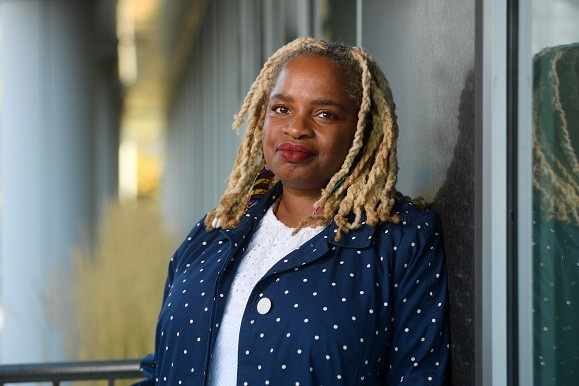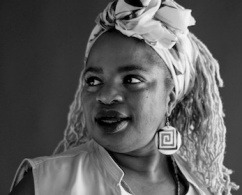James R. Johnston Chair’s new Blog!
September 4, 2020

My name is OmiSoore Dryden, and I’m the 4th James R. Johnston Chair in Black Canadian Studies at Dalhousie University.
Black Blog will be focused on Black Studies, Black Med Education, Black Health, Black life, Black research, and Black issues.
In 1991, Dalhousie became the first university in Canada to establish a senior academic chair in Black Studies. The Chair is based in Halifax to honour the legacy of James R. Johnston and to recognize and honour the unique historical presence of African Nova Scotian/Black Scotian people. Dr. Esmeralda Thornhill (Faculty of Law) was the first person to be appointed as Chair in 1996 (See About for more information on all previous Chairs).
Over the past 25 years, a number of universities have followed Dalhousie’s lead and created Black Studies chairs, however, the James R. Johnston (JRJ) Chair remains unique in two distinct ways: each new Chair has a six-year term, and each chair resides in a different faculty and academic unit. With my appointment, the James R. Johnston Chair moves into the Faculty of Medicine for the first time. I am the first queer person to hold the JRJ Chair in Black Studies at Dalhousie. These are very important and timely milestones.
Black Studies and Medicine
Black Studies is a vast discipline which exists beyond humanities and social sciences. The JRJ Chair in the Faculty of Medicine is a reminder of this: Black studies is a necessary intervention into the field of medical education and public health in Canada and discussions of Black health equity. Medicine, medical practice, and health do not live outside of culture. The development of medical education, procedures and practices happened (and happens) within the social/cultural. Black studies in medical education and public health interrogates the parameters of what makes someone healthy and the system of health care in which we exist. The myth of racism-free field is deadly.
Black Queer Lives (also) Matter
Black Lives Matter was created in 2013 by three Black women, two of whom are queer. In their work they specifically state that: “as a network, [BLM has] always recognized the need to center the leadership of women and queer and trans people. To maximize our movement muscle, and to be intentional about not replicating harmful practices that excluded so many in past movements for liberation, we made a commitment to placing those at the margins closer to the center.”
In the continuation of Black Lives Matter uprisings, it has been disappointing and disturbing to witness the ways in which the queer foundation of Black Lives Matter is being ignored or, worse, erased. It is important to remember the words and guidance of Audre Lorde who reminds us that “there is no such thing as a single-issue struggle because we do not live single-issue lives.”
As a Black queer woman and the James R. Johnston Chair in Black Canadian Studies, the work I do will bring a new voice to the Chair, not only in the focus on medicine, and medical education, but also because I work within the theoretical frameworks of Black Feminist Thought, Black Crip Studies and Black Queer/Trans Diasporic Analytics. My focus on the experiences of Black people includes the experiences of Black women (cis and trans), Black LGBTQ people and Black people with disabilities in research and education.
You will notice some changes to the website, in addition to Black Blog. On the Home page you’ll find up-to-date information including Chair Chats, #WheresTheChair and the JRJ Chair’s twitter feed. The About page now has my updated bio, information and biographies for the previous Chairs, and resources on Black Studies (at Dal and across the country). News and Research, a new page provides information on my current funded research, and links to non-academic news articles and public opinion pieces. BLM-Medicine focuses on a variety of resources specifically focused on Black people and the experiences of Black people in medicine and medical education. Black Med Ed Collaborative highlights the development of a Black Health Curricular resource and primer. I co-lead this project with Dr. Onye Nnorom (University of Toronto). The last two pages, Where Was The Chair, includes a listing of my past lectures and panel presentations; and Contact provides information on the best way to reach me.
That’s it for now. See you next time! Black Blog
#AllBlackLivesMatter #BlackMedEd
The First #JRJChairChat is September 16, 2020, 4-6pm ADT! Remember, this is for Black med students, Black students in the health professions and Black grad students.

